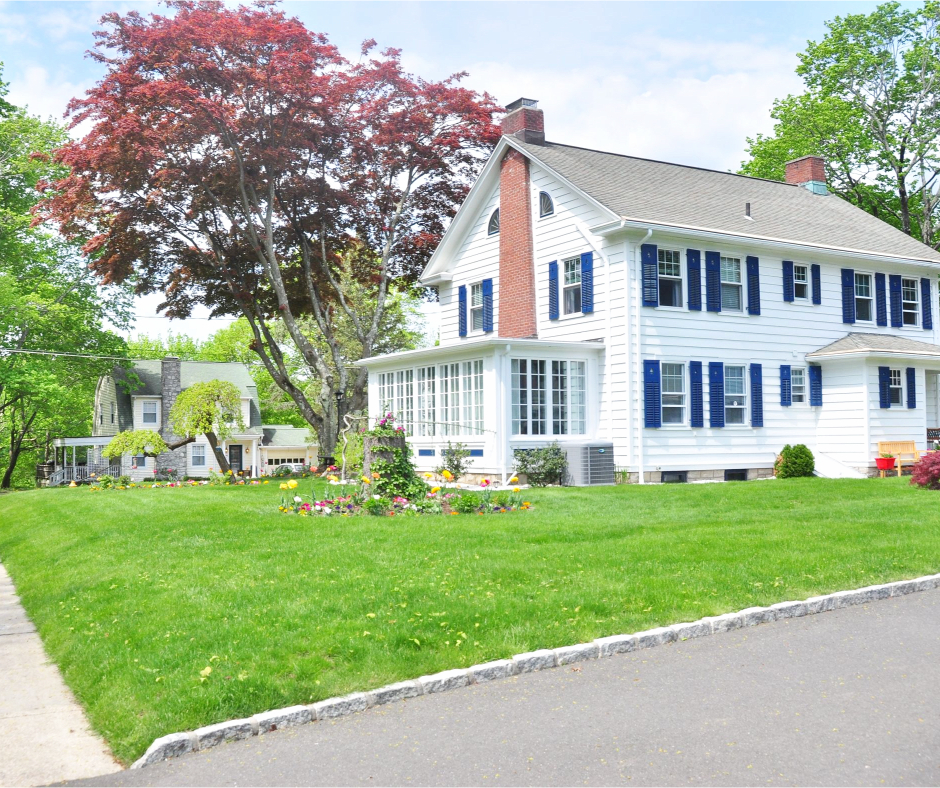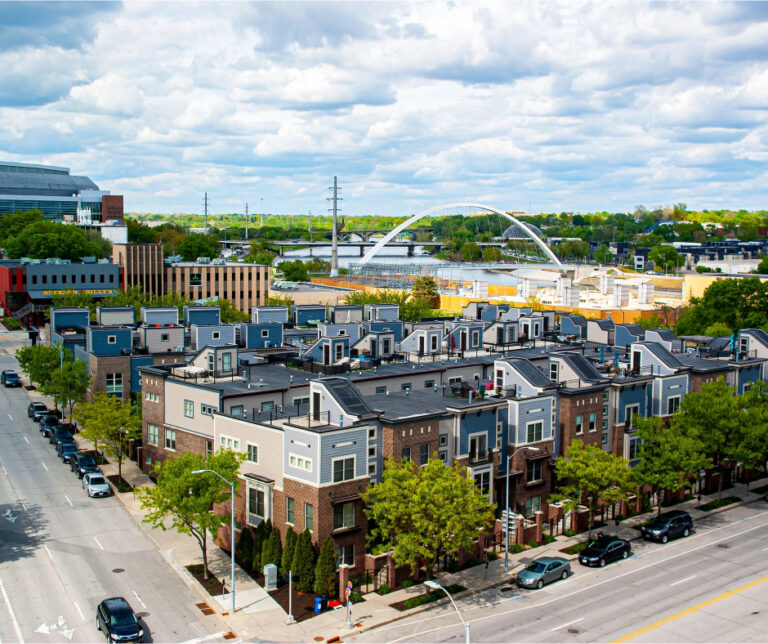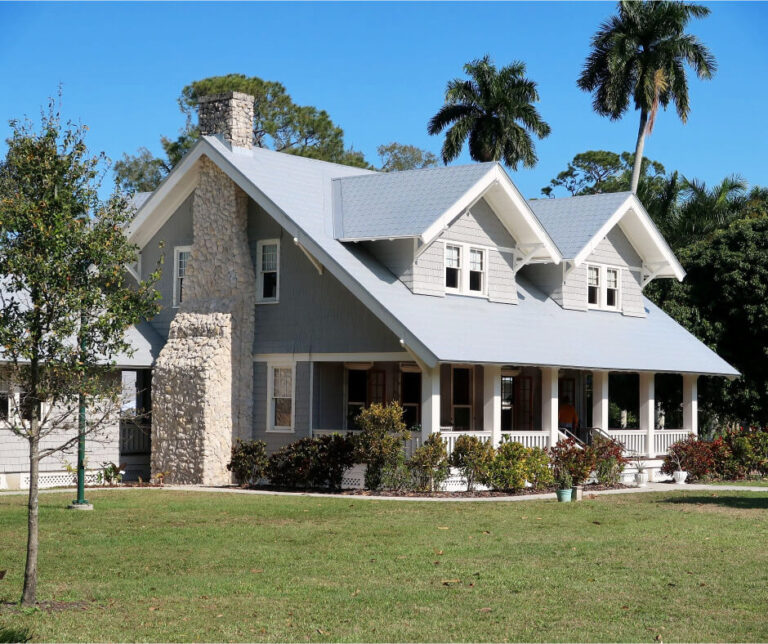This guide will cover how much house can I afford versus what I qualify for. Mortgage lenders will qualify borrowers based on the debts that report on credit reports. Underwriters also go by gross income and not net income. Alex Carlucci of Gustan Cho Associates explains the frequently asked question by borrowers on how much house can I afford:
Homebuyers need to consider that that a $300,000 home in one area does not have the same monthly housing payment as a $300,000 area. Monthly housing payments can vary depending on interest rate, property taxes, homeowners insurance, HOA, or flood insurance if applicable.
Just because a mortgage underwriter qualifies you for a certain loan amount does not mean you can live comfortably and manage your debts. Everyone has a household budget. For example, debt-to-income ratio calculations do not include debts like utilities, insurance, child care, educational expenses, maintenance, vacation, medical care, and personal expenses.
How Much House Can I Afford Versus What I Qualify For
How much house can I afford is the real budget homebuyers need to go by versus what I qualify for. Homeowners should consider the monthly housing payment versus their income and monthly debt.
When lenders qualify and pre-approve borrowers, they take the gross income as the qualified income. Not the net income after taxes. Debts that do not report on credit reports is not taken into account. The lender’s how much do I qualify may not be an actual number. You need to calculate how much house can I afford rather than how much you qualify.
How much you qualify for is not an accurate number you can afford. You should keep in mind how much house can I afford. Mortgage lenders do not consider monthly debt payments that do not report on credit reports. Everyone has a household budget. How much house can I afford depends on your expenses.
How Much House Can I Afford Vary State To State
Are you in the local market and investigating whether to get a new or existing home? Are you seeking out information on whether to refinance your current mortgage? Consider which state you live in, as it could significantly impact the closing cost of your loan. Dale Elenteny of Gustan Cho Associates explains how much house can I afford as follows:
The cost of making the mortgage payment more expensive is mainly due to the different expenses in home prices, property taxes, and your area’s insurance costs.
In this blog post, we’ll explore some of the most expensive states and what constitutes a mortgage being considered expensive. From sky-high housing prices to steep interest rates, we’ll break down what factors contribute to higher mortgage closing costs and offer tips on navigating these pricey markets.
Most Expensive States for Mortgages
Hawaii, Alaska, California, and Oregon are the most expensive mortgage closing costs states. In Hawaii, the average mortgage payment is $3,025. Alaska has the second-highest mortgage payments, with an average of $2,917. California is third, with an average mortgage payment of $2,665. Oregon rounds out the top four, with an average mortgage payment of $2,539. How much house can I afford is crucial versus how much house I qualify for, says Dale Elenteny of Gustan Cho Associates:
If you’re checking out and considering buying a home in one of these expensive states, you’ll need to be ready and prepared to budget for a higher mortgage payment. Compare loan offers from multiple area lenders to get the best interest rate possible. And remember to factor in other costs that accompany buying a home, such as local property taxes and insurance premiums.
These high mortgage closing costs are due to a variety of factors. In Hawaii and California, home prices are significantly higher than the national average. The borrowers in these states must take out larger loans to purchase a home. Additionally, mortgage interest rates are typically higher in coastal states like Hawaii and California than in other parts of the country.
What Factors Determine Mortgage Costs?
When it comes to how much your mortgage costs, a few factors are at play. Market conditions determine interest rates and can fluctuate. It’s best to secure a rate when you find one that suits you. Second, loan type is something to consider. Mike Gracz of Gustan Cho Associates strongly advises borrowers on the type of loan program when determining how much house can I afford to buy.
There are both fixed-rate loans with rates that stay the same for the duration. Adjustable-mortgage rate mortgages have rate caps to protect borrowers from sudden interest rate hikes. One of the most import factors to consider when thinking about how much house can afford to buy is the repayment term.
Borrowers should compare mortgage loan programs when analyzing how much house can I afford to buy. Government-backed loan (like FHA), which usually features lower interest rates and more lenient down payment requirements, can be a great option for borrowers with lower credit scores than conventional loans. Your credit score is essential in determining costs since those with higher scores may qualify for better rates.
How Can I Reduce My Mortgage Costs?
Referring to the National Association of Realtors, the average American homeowner will pay $9,080 in mortgage costs each year. The most expensive states for mortgages, where homeowners will pay an average of $12,000 or more per year, are Hawaii, California, Colorado, Washington, and Oregon. But there are ways to reduce your mortgage costs no matter where you live. The following sections will discuss getting the most house for your money.
How To Get The Most House For Your Money
You can get more buying power on your home purchase with a lower interest rate. Get a lower interest rate by shopping for lenders for the best rates. One of the best practical and efficient ways to lower your mortgage costs is to get a lower interest rate on your loan. John Strange advises refinancing your high-interest rate mortgage to a lower-rate home loan if possible:
Refinance your mortgage to a lower interest rate. This will help lower the overall amount of interest you pay each month but may come with other costs, such as loan origination fees or points.
You can start by shopping around for a better deal from lenders or refinancing your existing loan at a lower rate. Another way to save money is by paying down your principal balance. Another way to reduce your mortgage costs is to pay your principal balance faster. Making larger payments towards your principal can help you save much money on recurring interest charges over the life of your home loan.
Save Interest Expense By Going With a 15-Year Versus 30-Year Fixed Rate Mortgage
Consider a shorter home loan term. If you can afford this, opting for a shorter home loan term can also help you save on interest charges and overall mortgage costs. Always check the market to see if rates have dropped or are in a downward trend, advises Dale Elenteny of Gustan Cho Associates:
Shop around for a more competitive interest rate when your current rate expires. Many lenders offer lower rates than you might be currently paying.
Although you’ll have higher monthly payments with a shorter loan term, you’ll save money in the long run by paying less interest overall. Assuming a fixed-rate mortgage, there are only a few ways to reduce your mortgage costs. You can make additional payments on your mortgage each month. This will reduce the overall interest you pay over the entire life of your loan and help you pay off your mortgage faster.
Bi-Weekly versus Monthly Mortgage Payments
Consider switching to a biweekly mortgage payment schedule. With this loan repayment plan, you make half of your regular, normal monthly payment every two weeks ( or twice a month) instead of once per month. This can help boost your pay off your mortgage faster and reduce the overall interest you pay on your loan.
If you’re looking to reduce your mortgage costs, there are several things you can do. One is to shop around for a better interest rate. Another is to ensure you’re getting the best terms on your loan. You can also negotiate a lower interest rate with your lender. You can refinance your mortgage for a lower interest rate and monthly payment.
How To Lower Your Monthly Housing Payments
If you’re looking to reduce your mortgage costs, there are some other things you can do. Again, consider refinancing your mortgage. This helps you secure a lower interest rate, lowering your monthly payments. You can negotiate with your lender for a lower interest rate. Ask them about a buy-down or an adjustable rate for a short-term option. The plan could be to take this option when you have higher interest rates and go to a fixed-rate loan product as rates come down. Another option is to shorten the term and life of your loan, which will also lower your monthly payments.
Make sure you’re making all of your planned payments on time, not late, and in full, as this can help you keep your credit scores up to qualify for a lower interest rate in the future.
You can do other viable things to reduce your mortgage costs. One is to shop around for a more competitive interest rate. Another is to seek out a Mortgage Broker, who can sometimes shop hundreds of Lenders for you at once. And finally, you can always negotiate a lower rate with your lender.
Effective Ways to Pay Off a Mortgage Quickly
In this section, we will discuss insightful tips for paying off your mortgage quickly that was mentioned earlier. Make biweekly payments ( twice a month) instead of monthly payments. This will reduce the future interest you pay over the entire home loan life and help you efficiently pay off your mortgage faster.
The average mortgage in America is $156,000, with homeowners spending an average of $923 monthly on their mortgage payments. For many, that is quite a bit of money, and it can be difficult to locate extra cash to pay off your mortgage quickly. But making small changes in your budget and taking advantage of 0% interest balance transfer offers can help make this possible and help you pay off your mortgage faster than you thought possible.
Making Extra Payments To Save Mortgage Interest
Make extra payments if possible when you can. Even an extra $50 per month can make a huge difference and impact the life of the loan. Get a 0% interest balance transfer credit card and use it to make all your mortgage payments for 18 months. Angie Torres, the National Operations Director at Gustan Cho Associates, advises the following:
Making extra payments towards your principal mortgage loan balance will help you condense, save on interest, and pay your mortgage faster. Just be sure to pay all your payments as planned on time so you don’t damage your credit score. Refinance to a shorter-term loan if you have good or excellent credit and equity in your home.
This will help you pay off and shorten your loan faster, saving on interest over the life of the loan. Consider carefully a home equity line of credit if you need cash for home repairs or other expenses. You can get a lower interest rate than a home equity line of credit.
Prepare for Future Increases in Mortgage Rates
If you’re like most people, your mortgage is your largest monthly expense. And if you need to prepare for increases in your mortgage payment, it can be a huge financial burden. This section will cover guidance on preparing for future rate increases. Let’s go back to this one important suggestion. Alaina Phillips of Gustan Cho Associates shares her thought about preparing for future increases in mortgage rates as follows:
Make extra payments now. If you can afford to arrange extra payments on your mortgage, do it! This will help greatly reduce the amount of interest paid over the life of the home loan and help you build equity faster. Refinance to a shorter-term loan.
If you have a 30-year mortgage, consider refinancing to a 15- or 20-year loan. The shorter period will mean higher monthly payments, but you’ll pay less interest overall and build equity faster. Get rid of your private mortgage insurance (PMI). If you have PMI, try to get rid of it as soon as possible.
Lower Your Mortgage Payment By Getting Rid of Mortgage Insurance
Private mortgage insurance included in your loan is an additional cost that doesn’t protect you; it only protects the lender if you default. Have an emergency fund. It’s always a good idea and option to have an emergency fund in case something unexpected comes up – like a job loss or a medical emergency. This cushion will help keep you from defaulting on your loan if you experience a setback. Stay disciplined with your spending. If you’re not careful, it’s easy to fall into the lifestyle inflation trap – where your expenses are.
Alternatives to Traditional Home Loans
There are many different loan product options for getting home mortgages. You can get a traditional (conventional, FHA, VA, USDA loans) mortgage from a retail bank or other local financial institution. Alternatively, you can explore alternatives like getting a loan from family or friends, using home equity lines of credit, or even taking out a personal loan. Each option has pros and cons, so doing local research and deciding which is right for you is important. If you’re seeking an alternative to a more traditional home loan, getting a private money loan from a family member can be an option, advises John Strange:
Getting a loan from family or friends can be another option. This can be a good option if you have someone willing to lend you the money at a low-interest rate. However, it can also be risky because if you default or stop paying on the loan, you could damage your relationship with that person.
You can consider using home equity lines of credit. Private money loans are an option that allows you to borrow against the equity in your home. The interest rates on home equity lines of credit loans are usually lower than those on traditional mortgages. Still, they can sometimes be difficult to qualify for if you don’t have a lot of equity in your home. Another option can be taking out a personal loan: Personal loans are often easier to qualify for than other loans, but they typically have higher interest rates. That said, they can still be a good option if you need cash quickly and don’t qualify for other types of loans.
What Are Non-QM Loans
A non-QM loan product is a type of mortgage loan that does not conform to the standards set by the Qualified Mortgage Rule. This rule, implemented by the Consumer Financial Protection Bureau in 2014, establishes certain mortgage standards, including limits on fees and interest rates. Non-QM loans do not meet these standards and are therefore considered riskier for lenders. As a result, borrowers who take out non-QM loans may have to pay higher interest rates and fees.
How can I look for Lender to Help Me?
When looking for a lender to help you finance your home, comparing rates and terms from multiple lenders is important. Shopping for different lenders and or mortgage brokers can help you get the best possible deal on your mortgage. Be sure to compare apples to apples when looking at different lenders. Some common things to look at include:
- The interest rate
- The term of the loan (15-year, 30-year, etc.)
- whether the rate is fixed or adjustable
- points and fees associated with the loan
- down payment requirements
It’s also essential to read the terms and fine print and understand all the loan conditions before you sign anything.
How Much House Can I Afford and Get The Most House For The Money
If you have any questions about the content of this guide on how much house can I afford to buy versus qualify, you can contact Ronda Butts. If you should decide to buy, before you begin looking for a home and during the process, we have vast experience working with buyers to get them ready to purchase their dream home. We can take you through your home loan’s buying and financing process. Ronda Butts is a senior advisor and dually licensed realtor and loan officer who is expert networking in referring homebuyers to realtors nationwide:
Ronda Butts does not represent buyers or sellers but offers free consultation in 48 states, including Washington, DC, Puerto Rico, and the U.S. Virgin Islands at Gustan Cho Associates by connecting homeowners, buyers, and sellers to the needed sources.
Ronda and the team at Gustan Cho Associates can connect you to title companies/attorneys and real estate agents in your area that can help as needed. Call or text Ronda Butts at 407-460-7999 or email at ronda@gustancho.com for more information and further assistance. Ronda is an experienced referral agent, a dually licensed real estate agent, and a mortgage originator. Ronda has successfully guided many homeowners through obtaining a home on both the lending and real estate side.






